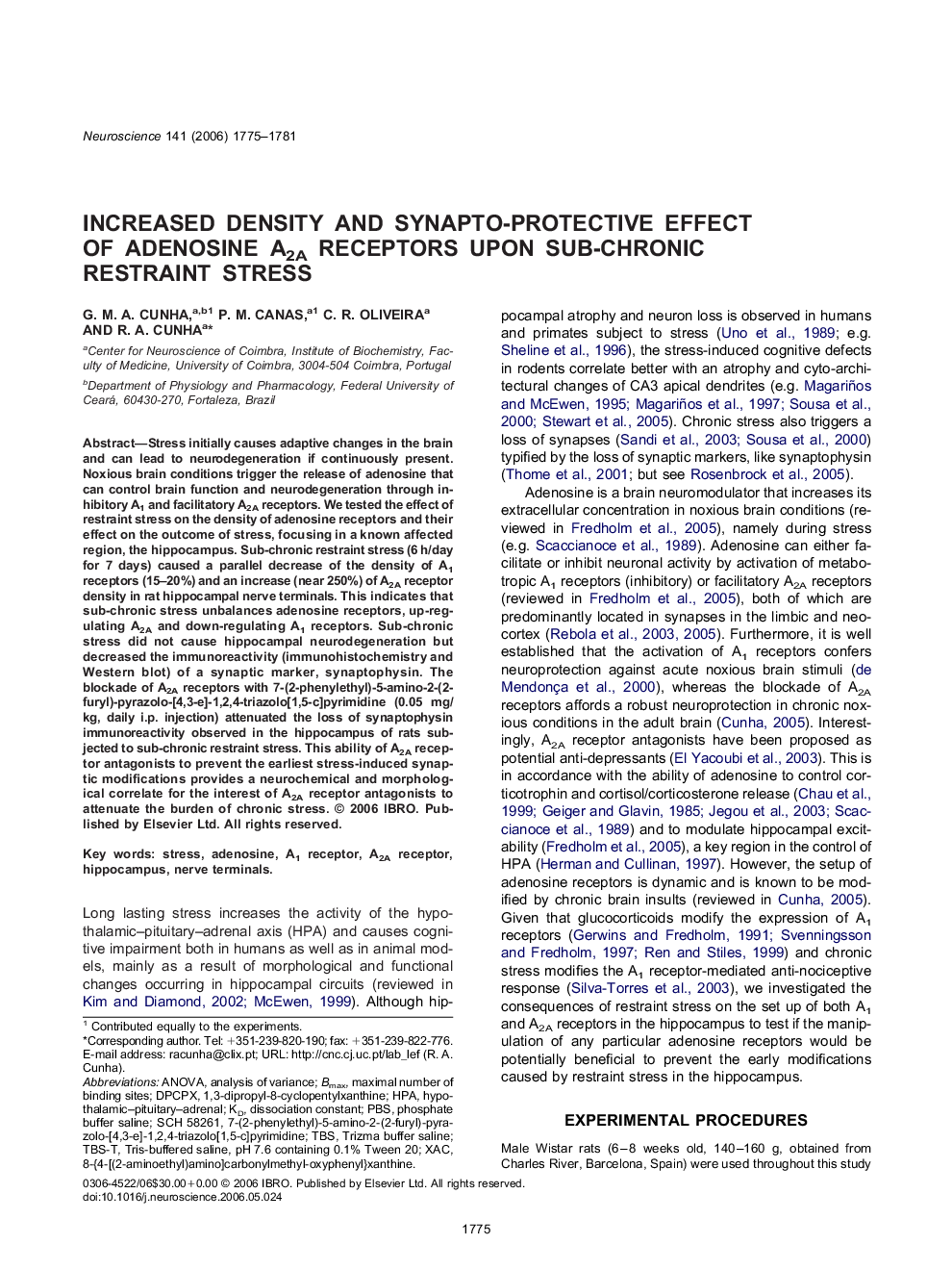| Article ID | Journal | Published Year | Pages | File Type |
|---|---|---|---|---|
| 4342090 | Neuroscience | 2006 | 7 Pages |
Abstract
Stress initially causes adaptive changes in the brain and can lead to neurodegeneration if continuously present. Noxious brain conditions trigger the release of adenosine that can control brain function and neurodegeneration through inhibitory A1 and facilitatory A2A receptors. We tested the effect of restraint stress on the density of adenosine receptors and their effect on the outcome of stress, focusing in a known affected region, the hippocampus. Sub-chronic restraint stress (6 h/day for 7 days) caused a parallel decrease of the density of A1 receptors (15-20%) and an increase (near 250%) of A2A receptor density in rat hippocampal nerve terminals. This indicates that sub-chronic stress unbalances adenosine receptors, up-regulating A2A and down-regulating A1 receptors. Sub-chronic stress did not cause hippocampal neurodegeneration but decreased the immunoreactivity (immunohistochemistry and Western blot) of a synaptic marker, synaptophysin. The blockade of A2A receptors with 7-(2-phenylethyl)-5-amino-2-(2-furyl)-pyrazolo-[4,3-e]-1,2,4-triazolo[1,5-c]pyrimidine (0.05 mg/kg, daily i.p. injection) attenuated the loss of synaptophysin immunoreactivity observed in the hippocampus of rats subjected to sub-chronic restraint stress. This ability of A2A receptor antagonists to prevent the earliest stress-induced synaptic modifications provides a neurochemical and morphological correlate for the interest of A2A receptor antagonists to attenuate the burden of chronic stress.
Keywords
Related Topics
Life Sciences
Neuroscience
Neuroscience (General)
Authors
G.M.A. Cunha, P.M. Canas, C.R. Oliveira, R.A. Cunha,
